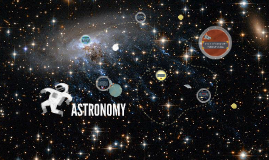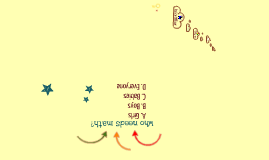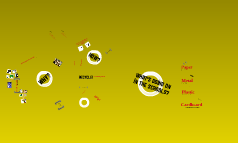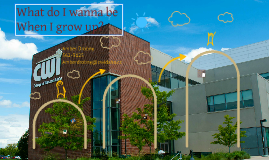Elementary Presentation
Transcript: An overview of physical growth and development of Elementary Children Age 6 to 12 Standard A: Students will acquire the knowledge, attitudes and interpersonal skills to help them understand and respect self and others. Competency PS:A1: Acquire Self-Knowledge Indicator PS:A1.1: Develop positive attitudes toward self as a unique and worthy person After several classroom-guidance lessons on different character traits, students will create character frames for a chance to draw out traits that they believe they encompass. Putting the hole in the middle (to allow students to stick their heads through) surrounds the child with words that they feel describe them. Morality is… Right versus wrong Concern for others Willingness to act Trustworthiness Self-control is essential 3 elements: emotions, cognitions, behaviors Competency: C:A1 Develop Career Awareness Indicator: C:A1.2 Learn about the variety of traditional and nontraditional occupational. Activity: Classroom guidance on career diversity. Students will watch Toy Story, which can provide the opportunity for the young students to discuss the different careers and roles that each of the toys have and how they relate to the real world. Resources: TV, VCR, and the movie Toy Story. Physical Development for Elementary Children Elementary Developmental Activity Frontier Elementary School, District 20 Activities Standard A: Students will acquire the skills to investigate the world of work in relation to knowledge of self and to make informed career decisions Worry Too Much – Students who are overly concerned with grades, life expectations and demands from family and school will learn strategies to overcome anxiety. Second Step Program- Teaches the skills (by grade level) kids need to succeed in problem solving. Character Frames 3rd Grade Psychosocial Development: 9-11 Years Old 4th Grade & 5th Grade 1st Grade Career Piaget’s Cognitive Development Standard A- Students will acquire the skills to investigate the world or work in relation to knowledge of self and to make informed career decisions. ICAP- Career exploration for 5th graders to introduce them into the program and encourage thinking as it relates to their future career and educational choices. Manitou Elementary School, District 14 ASCA National Standards for Students School District Examples Freud's Psychoanalytic Theory Driven by inborn, self-serving impulses By preschool age the super ego is active Identification and conscious building Understand the developmental stages & effect of counseling approach/techniques Development of self varies across cultures (independence vs. interdependence) Age appropriate vocabulary Play Therapy & Bibliotherapy benefits Common issues: Fears & Anxieties, Child Sexual Abuse, Fostering Resilience Could have a dramatic shift in task achievement in different cultures Tasks are heavily influenced by training and context Abstract ideas and situations are harder to understand and figure out Combination of adult expectations and children’s drive toward mastery sets the stage for the psychological conflict/crisis. Resolved positively when children develop a sense of competence at useful skills/tasks and helps facilitate healthy personality development. Capable of learning, creating and accomplishing new skills and knowledge, thus developing a sense of industry. This is a very social stage of development and if we experience unresolved feelings of inadequacy and inferiority among our peers, we can have serious problems in terms of competence and self-esteem. Stages of Moral Development Implications Elementary School Presentation Sources: From The Life Span: Human Development for Helping Professionals by Patricia C. Broderick and Pamela Blewitt Children think in an organized, logical fashion only when dealing with concrete information Mental operations work poorly with abstract ideas Continuum of Acquisition – gradual mastery of different conservational ideas Cognitive Development Examples from Local School Districts Academic Personal/Social Development Self-esteem tends to rise and sibling rivalry tends to increase Distinguish ability, effort, and external factors in attributions for success and failure. Shifts between problem & emotion strategies in regulating negative emotion Can view the self from another person’s perspective; empathy in all situations Peer groups emerge; friendships become more selective and based on mutual trust Aware of gender stereotypes, personality traits and achievement; gender identity expands to include self-evaluations and pressure to conform Changing Families- For students who have recently moved or are moving, children from a divorce or separation, “blended” families, death in the family, or any other changes in a student’s life. Friendship- To assist students to develop better interpersonal relationships with others. This group will provide solutions for students dealing with conflicts and provide effective communication skills. Love and Logic

















